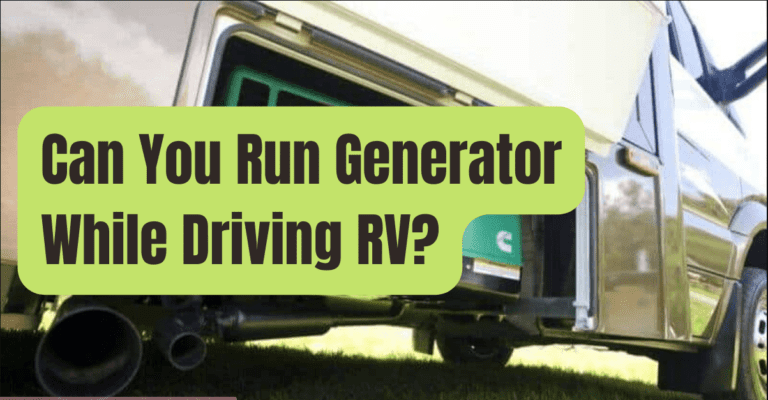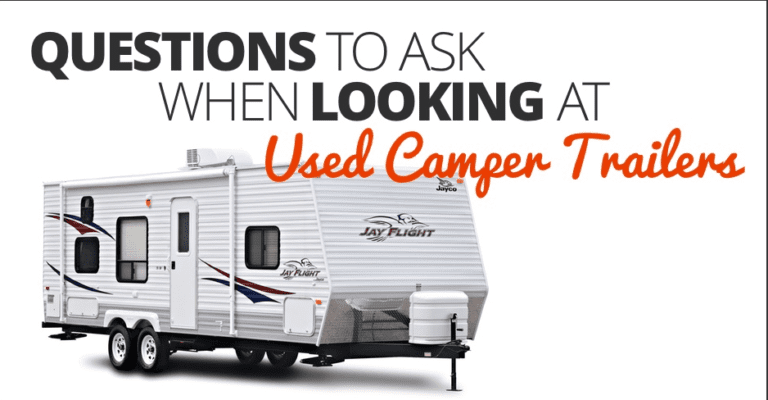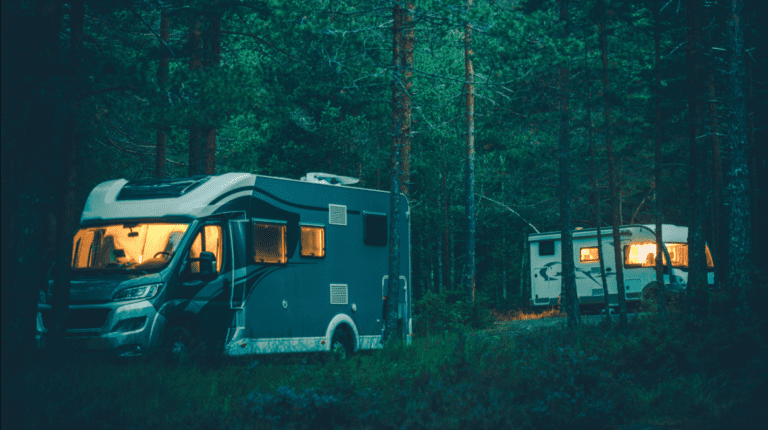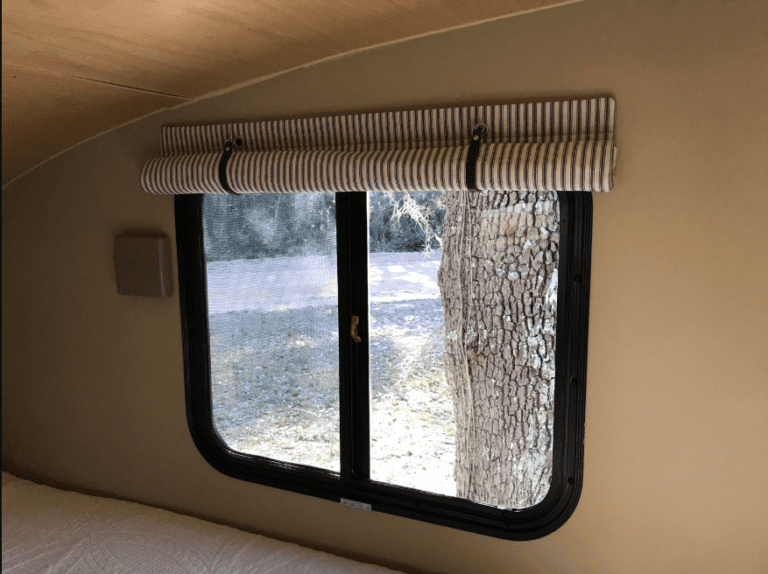Top 10 Best & Cheap Solar RVs
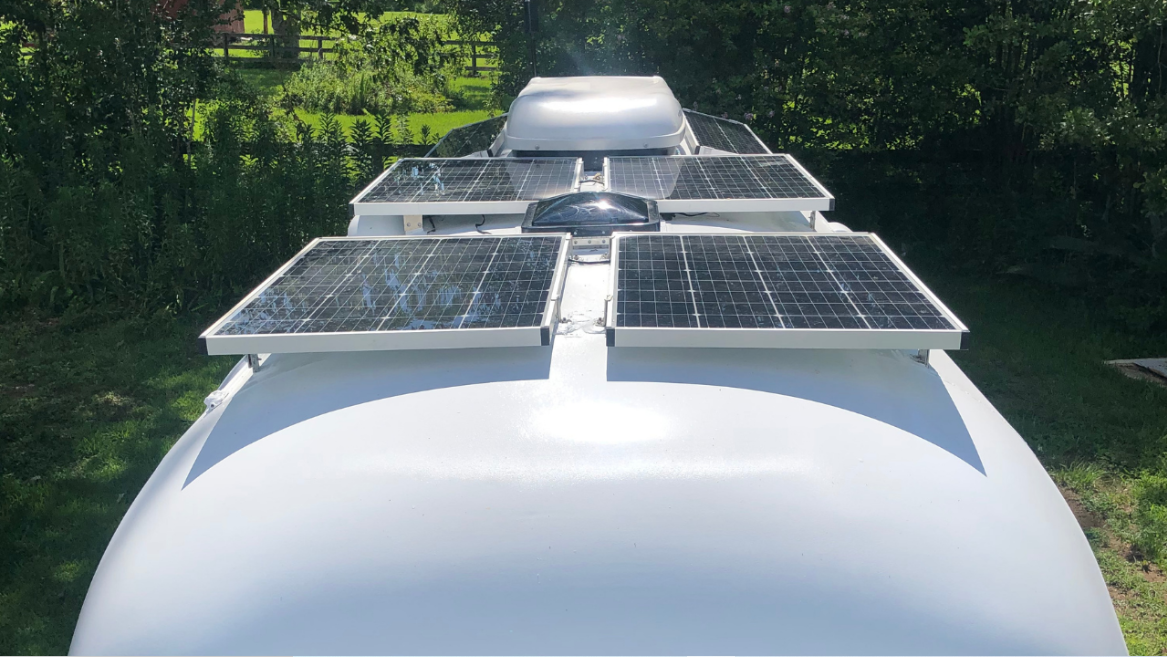
At least using solar panels to power your camper can provide a peaceful, off-grid experience.
Without the need for hookups, daily driving, or noisy portable generators, you can keep your recreational batteries charged and enjoy nature’s best boondocking spots without paying for campgrounds.

A solar setup requires few components to install, so you need to purchase the right size components and configure the setup appropriate for your electrical demand.
Or you can simplify it and buy a solar panel kit, which includes all the parts you need.
With preconfigured solar panel kits, adding solar panels to RVs, campervans and motorhomes has never been easier.
But there are some kits available, and this post will help you figure out which one is best for you.
So, what are the best RV solar? Move on!
Renogy 200-Watt Solar Premium Kit – Best RV Solar Panels Kits Reviewed
Explanations
Wattage: 800 watts
Power Source: Solar powered
Item Weight: 14.1 lbs.
A 200-watt solar kit is ideal for a camper with modest energy needs.
Depending on the amount of sunlight, this is enough to run a small refrigerator, run your lights and roof vents, and charge small appliances. You will have enough power to run the inverter occasionally.
The Renogy 200w Premium Kit tops all the solar panel kits on our list.
This kit includes 2 panels of Renogy’s Monocrystalline line for maximum performance. They are also lightweight, an important factor for vehicle handling.
The panels’ corrosion-resistant aluminum frames mean these things will last for years.
Of course, as you’d expect from a premium kit, it also includes a 20A MPPT charge controller to help your battery bank get the most out of these top-of-the-line solar panels.
You get everything you need to install the kit, including mounting brackets to fit the panels to the camper roof, fuses, cables and connectors for the panels.
A major advantage of choosing Renogy solar panels is their 25-year warranty.
Kit does not include battery or inverter. For a 200w solar setup, we recommend at least a 100ah battery bank.
Installation instructions are included in the kit, but if you need help with this, check out our 200w solar panel wiring diagram.
What do we like?
- That’s enough energy to run a small refrigerator, keep your lights and vents running, and charge small electronic devices.
- They are light, which is important for handling vehicles.
Which we don’t like.
- Batteries and inverters are not included in the kit.
PROS
- High Quality
- Packed securely
- Corrosion resistant panels
- 25-year warranty
CONS
- Poor customer service
Renogy 800W Monocrystalline Solar Premium Kit
Explanations
Wattage: 800 watts
Input voltage: 24 volts
Power Source: Solar powered
People with large motorhomes and RVs often have high energy demands. Rather than restricting you to campgrounds, a good-sized solar panel kit will allow you to enjoy boondocking and still keep the lights on.
Depending on the amount of sunlight, an 800w solar system can produce 240 – 256 amps per day with only 4 hours of peak sun.
Enough to power a TB, charge a laptop and run a coffee maker, and a large, energy-efficient fridge.
An 800w system gives you a good few day in reserve, depending on your usage, and without other means of recharging.
If you plan to live in a camper during the winter months, the 800w is an absolute luxury!
Like all of Renogy’s premium kits, the 800w version includes their top-of-the-range monocrystalline solar panels, an MPPT solar charge controller, and all the necessary accessories.
We also don’t forget their standard warranty.
Kit does not include battery or inverter. For an 800w solar setup, we recommend at least a 300ah battery bank.
Installation instructions are included in the kit, but if you need help with this, check out our 800w solar panel wiring diagram.
What do we like?
- Can produce 240 – 256 amps per day with only 4 hours of peak sun.
- The kit comes with top-of-the-line monocrystalline solar panels, an MPPT solar charge controller, and all the necessary fittings.
- Easy to install.
Which we don’t like.
- Batteries and inverters are not included in the kit.
PROS
- Reliable power output
- Efficient performance
- Industry leading technology
- Built to last
- Quick and easy installation
CONS
- Poor customer service
Jackery Solar Generator 1000 Solar Panel Kit (Jackery 1000 + 2 x Solar Saga 100W)
Details
- Wattage: 1000 watts
- Input voltage: 110 volts
- Power Source: Battery Powered, Solar Powered
- Item Weight: 22.04lbs
Portable solar generators, combined with solar panels, are a great way to get the benefits of solar energy without having to install it permanently on your roof.
We’ve written an entire post on portable solar generators, so we won’t go into all the details here. Specifically, the Jackery Solar Generator 1000 Solar Panel Kit is a complete setup.
It has 2 x 100w folding solar panels and all other components including the battery are integrated into the solar generators.
The main advantage of this setup is its portability. And if your camping trip turns into a wet weekend, you can recharge the generator from the mains supply!
What do we like?
- This is a great option for those who want to prioritize portability and storage.
- Features a pure sine wave inverter with AC outlet, and can be charged via solar panels, wall outlet, or 12V carport.
Which we don’t like.
- You may not be able to use it for long trips
PROS
- Portable
- Fast Solar Recharging
CONS
- Moderately noisy cooling fan
Renogy 100-Watt 12 Volt Solar Premium Kit
Details
- Wattage: 100w
- Input voltage: 24 volts
- Power Source: Solar powered
- Item Weight: 26.7 lbs.
If you’re on a tight budget or have a small camper, the Renogy 100-Watt 12 Volt Solar Premium Kit is perfect for your campervan electrical system.
As you’d expect from Renogy’s premium kits, it also includes an MPPT charge controller and monocrystalline solar panels. A 20A controller means you can easily add a panel or two later.
A 100w solar system probably isn’t enough to keep you in the van all year, without extra charging from shore power or while you drive, but it’s a good start.
With a few hours of peak sunshine, you can probably generate and store enough power to recharge some small appliances, run your roof at night to prevent condensation, run a composting toilet fan 24/ 7 keep running and some LEDs may turn on. Lights inside the campervan.
You get everything you need to install the kit, including mounting brackets to fit the panels to the camper roof, fuses, cables and connectors for the panels.
Kit does not include battery or inverter. For a 100w solar setup, we recommend at least a 50ah battery bank.
If you plan to expand the system later or top up from other sources, you’re probably better off buying a larger battery bank.
What do we like?
- When the sun is at its peak, you can probably generate and store enough power to recharge some small appliances.
- The kit includes everything you need to install the panels, including mounting brackets for the roof, fuses, cables and connectors for the panels.
Which we don’t like.
- The kit does not come with a battery or inverter.
PROS
- good price
- Easy to install.
- light weight
CONS
- Poor customer service
Jackery Solar Generator 300 (Jackery 300 + Solar Saga 100W)
Details
- Wattage: 300
- Input voltage: 110 volts
- Power Source: Battery Powered, Solar Powered
- Item Weight: 7.1 lbs.
The Jackery Solar Generator 300 Kit is the only other complete setup on the list. No need to buy a separate battery and no complicated electrical installations.
Simply plug the portable solar panel into the solar generator, and you’re ready to go.
This small generator (or, more accurately, power station) is ideal for car campers and won’t take up much storage space.
What do we like?
- When the sun is at its peak, you can probably generate and store enough power to recharge some small appliances.
- Setup is complete. No need to buy a separate battery or install complicated electrical wiring.
- Portable
Which we don’t like.
- N/A
PROS
- Clean and quiet
- easy
- safe
- Low cost
CONS
- N/A
Renogy 100-Watt Solar Flexible Kit
Details
- Wattage: 100W
- Input voltage: 55 VDC
- Power Source: Solar powered
- Item Weight: 4 lbs.
Full disclosure here: We’re not big fans of flexible solar panels. Their low profile makes them perfect for stealth camping on a campervan, but in our experience, they’re not as effective.
They perform best if there is a small gap under them to allow air to circulate. We had flexible panels (although they were a much cheaper brand than Renogy), and they lasted a year. We were far from impressed.
However, flexible panels are better than nothing if flat space on your roof is limited. And by investing in a good brand like Renogy, you can probably avoid the problems we experienced.
The Renogy 100-Watt Solar Flexible Kit includes a PWM charge controller, reducing overall costs. But we don’t recommend buying these kits if you plan to expand them later.
You’d be better off with one of the premium kits that include an MPPT charge controller.
What do we like?
- Flexible panels are the best option if your roof has limited flat space.
- Waterproof charge controller
Which we don’t like.
- We do not recommend purchasing these kits if you plan to expand them in the future.
PROS
- Easy to install.
- Multiple protection features for battery, controller, and solar panels
CONS
- Poor customer service
Renogy 100-Watt 12 Volt Solar Starter Kit
Monocrystalline panel and 30A PWM controller for solar charging, boats, RV, off-grid systems
Details
- Wattage: 100W
- Input voltage: 18.9 volts
- Power Source: Solar powered
- Item Weight: 19.84 lbs.
While the Renogy 100-Watt 12 Volt Solar Starter Kit includes a PWM charge controller instead of an MPPT controller, it’s still a worthy contender. This is the most budget-friendly kit on the list.
If you are just starting to explore the benefits that a solar system can provide in your camper, this kit may be just what you are looking for.
For under $200, you get everything you need, install it, and charge your battery. It includes a compact 100w monocrystalline panel, so you’re not losing quality there.
Plus, if you want to expand later, you can always invest in a new MPPT charge controller at the same time. That way, you’re not shelling out a lot of cash on a system you can’t use.
What do we like?
- The cheapest kit on the list
- Perfect for beginners
- Expandable
Which we don’t like.
- An MPPT controller is replaced by a PWM controller.
PROS
- safe
- effective
- Reliable
CONS
- Poor customer service
WindyNation 100-Watt Solar Panel
WindyNation’s 100-Watt Solar Panel offers the ability to live off the grid and is an ideal option for those living in remote areas. This monocrystalline solar panel costs about $100 and weighs over 13 pounds. The WindyNation 12-volt solar panel has a strong, anodized aluminum frame to protect it from corrosion. WindyNation offers a 5-year warranty on parts and labor and a 25-year power warranty.
What we like:
- Connect multiple WindyNation panels for strong charging current.
Things to consider:
- If you are using multiple panels on your RV, consider how the added weight will affect your vehicle.
ALLPOWERS 100-Watt Portable Solar Panel
The ALLPOWERS100 Watt Portable Solar Panel is a flexible option that is perfect for tight fitting or small spaces as it can fold up for easy storage. This feature makes it easy to transport one or more monocrystalline solar panels to your RV, camper, boat, or wherever you travel. Folded dimensions are 12.6 x 7.5 x 3.6 inches (unfolded is 37 x 37 x 0.39 inches). This $180 solar panel puts safety first with a built-in voltage regulator, surge protection, and short-circuit protection. The purchase of the ALLPOWERS100 includes an 18-month warranty and a 30-day return policy.
What we like:
- Foldable panels are perfect for easy storage.
Things to consider:
- Foldable panels are probably unnecessary if you want to mount your solar panels permanently on your RV.
ECO-WORTHY 100-Watt Solar Panel
The ECO-WORTHY solar panel is another 12-volt monocrystalline panel option for off-grid living or travel. Each RV solar panel costs about $90 and comes with pre-drilled holes for quick and easy installation, as well as a 2.5-foot MC4 connector for additional panels or charge controller options. The spec sheet lists a 25-year power production warranty (at 80% output) and a 10-year manufacturing warranty. ECO-WORTHY also offers a similar solar panel with a capacity of 195 watts for about $270.
What we like:
- Designed to conserve power in shaded environments for consistent performance regardless of weather conditions.
Things to consider:
- This solar panel is the heaviest on our list.
HQST 100-Watt Solar Panel
Priced around $90, the HQST solar panel is an affordable option for RVs, motorhomes, sheds, or other remote areas that matches the 100-watt capacity of some of its more expensive competitors. This monocrystalline solar panel has a high efficiency of 22.3% and has pre-drilled holes for easy installation. Like the ECO-WORTHY model, this panel features bypass diodes to ensure stable output in low-light conditions. RV solar panels also have a 25-year power output warranty and a 5-year materials and workmanship warranty.
What we like:
- This panel has consistently high customer reviews, and many consider it a cheap dupe of the Renogy brand.
Things to consider:
- Mounting brackets and connector wires will need to be purchased separately.
How to Find the Best RV Solar
Here are some of the most important things to think about when shopping for the best RV solar panels.

- Need your energy. RV solar panels typically have lower capacity because they are smaller and more lightweight. However, these features also make them easy to install and move around. The average RV or camper uses about 20 kilowatt hours (kWh) of electricity each day. Make sure you consider the capacity of the solar panel and how much energy you use each day before making your decision. Also, be aware of where you will be traveling. Are you taking a road trip to the top solar-producing states, or will your panels be up against the winter weather? Need help identifying your monthly energy consumption? The Serotoninergic usage calculator can help with this.
- Solar kits. Many solar companies offer kits, which include solar panels, cables and charge controllers. Some kits also include solar batteries, which can help increase the amount of electricity you use over time. Solar kits are usually more expensive than individual panels but may be worth the extra cost if you need the included components.
- Ease of installation. For travelers or campers who are often on the go, investing in solar panels with easy installation features can save a lot of time and hassle. Many RV solar panels come with pre-drilled installation holes or are extra lightweight to make setup easier.
- Panel cost. RV solar panels are a bargain compared to the cost of residential solar panels, helping RV owners see a faster return on their solar investment. Of course, the cost of RV solar panels varies depending on capacity, size and other factors. When shopping for solar panels, remember to factor in the cost of any other parts you may need to install the system, including batteries, chargers or cables. And if you want to power more than a few small appliances, you’ll need to invest in multiple panels or a higher-wattage solar panel, which can add to the cost. Payment options available to residential solar owners, such as power purchase agreements and solar leasing, are not an option for solar panels for RVs.
- Warranty Solar panel warranties for RVs can range from 18 months to 25 years. A power warranty ensures panel production over a period of time, and a workmanship warranty protects against physical damage. Most solar panels have both types of warranty.
Best brands
We recommend using reputable brands such as Renogy or Jackery. Less well-known brands are also available, but not all of them have the same track record.
There’s little difference in price, so we think it’s worth choosing a more established brand.
Some other brands to look for are:
- Goal Zero – Their Nomad range consists of micro solar panel kits, ideal for hikers and campers with small energy needs.
- Windy Nation – This US-based company manufactures components for wind and solar power generation. Their solar panel kits are of good quality at a reasonable price.
How much does a solar panel kit cost?
Kit prices vary based on wattage and included components.
Budget-friendly starter kits cost less than $200, such as the Renogy 100w Starter Kit. You may also need to add the cost of the battery and possibly an inverter.
If these small kits give you everything you need in the long run, they’re a great option.
But, if you expect to expand the system later, we recommend choosing the best solar panels (monocrystalline, rigid panels) and kits with an MPPT controller.
An equivalent small kit that you can easily upgrade later, like the Renogy 100w Premium Kit, costs less than $300. This may seem like a significantly higher price, but it makes better financial sense in the long term.
If your energy demands are more significant, and you want to spend more time off the grid, larger kits like the Renogy 800W Premium Kit cost a little over $1500.
For that, though, you’re getting plenty of solar power and a top-of-the-range charge controller for the most efficient battery charging.
Why choose a solar panel kit?
The most important advantage of buying a kit rather than individual components is convenience.
You can be sure that everything included is sized as a complete configuration, so your only decision is which size to buy.
Kits usually also include wiring instructions, making installation a bit easier for novices.
How much electricity do you need?
Off-grid living means you can only use the electricity you can generate and store. If you use more than you can produce, your batteries will eventually run flat.
Solar panel kits and their components can be expensive, so it’s more affordable to buy just the size to fit your needs.
And if you buy a kit that’s too small, it can be just as useless as buying one that’s too big.
Knowing how much power you need is the first step in sizing your complete setup. We have an RV Solar Calculator to help you size your system.
Even if you only plan to add a small solar capacity, we encourage you to use a calculator to figure out your base usage.
It will also detail how much solar panel power, battery storage, and size charge controller you need.
It is important to purchase a kit where all components are at least as large as calculated.
RV Solar Panel Kit Buying Guide
It is important to consider what ingredients are included before purchasing a kit. Here, we’ll take a look at the features to look for.
We have tons of articles about DIY campervan solar systems and detailed posts about each component. We have linked to them throughout this post so if you want to know more details just click.

What is included in a solar panel kit?
Most solar panel kits include everything you need to generate renewable energy from the sun.
- Solar Panel
- Solar charge controller
- the mountain
- The fuse
- Cabling and MC4 connectors
Since many camper conversions already have a battery bank installed, most often, solar panel kits do not include a battery.
If you want to use your solar setup to power any household AC appliances, for example, charging a laptop, you’ll also need an inverter. These are rarely included in solar panel kits.
We’ve included recommended battery and inverter sizes for each solar panel kit we’ve reviewed. But it’s important to size your inverter to meet your needs. You can read more about inverters here and use this inverter calculator to buy the right size.
Our list of portable solar panel kits includes a solar generator, such as the Jackery Solar Generator 300 Kit. Despite its name, a solar generator is, in fact, a battery bank that includes a charge controller and an inverter.
You can learn more about portable solar generators here.
Solar Panel
Not all solar panels are created equal.
First, choose between flexible and rigid panels.
Flexible panels can be more easily adapted to non-flat surfaces, making them a good option for boats and more rounded camper roofs. They are also very easy to install. That said, in our experience, flexible panels are not as strong or efficient as rigid panels.
Rigid panels provide a better permanent and long-term solution than flexible panels. Once fitted, they should be good for years.
Then there are three types of solar cells to choose from:
- Monocrystalline
- Polycrystalline
- Thin film aka amorphous
Solar panels are rated based on standard test conditions and are therefore benchmarked against each other. This means that a 100-watt solar panel is the same as any other 100-watt solar panel under the same conditions.
So how does technology matter?
Monocrystalline panels are the most efficient. They are more durable and not as sensitive to high temperatures as polycrystalline or thin film panels. Although they are the most effective, they are also the most expensive.
Polycrystalline solar panels are not as efficient as monocrystalline solar cells, but they are still quite common. Polycrystalline panels are more budget-friendly, but have a shorter lifespan.
Thin film is a type of solar cell where the photovoltaic material is printed onto the panel. The panel does not need to be a hard surface. Instead, they can be applied to cloth or plastic, very flexible. They have a shorter lifespan than other types of solar cells, though, and lower efficiency ratings. This means they need to be physically larger to produce the same energy as polycrystalline or monocrystalline panels.
Because campers have limited roof and storage space, we only recommend monocrystalline solar panels.
They allow you to get more energy for your footprint, which we think is worth more than saving a little money.
If you’re on a budget, start with a small but expandable kit so you can add more panels later.
Wind Nation Solar Panel Off Grid RV Kit
If you are looking for a basic solar panel then this is the best option for you. A solar panel provides just the right amount of electrical power, mainly if you won’t use it very often. The solar panel comes with a 100W solar panel and everything you need to install it easily and in no time.
The good thing about this solar panel is that it can be expanded by adding more panels if you need more electricity. It comes with all the necessary solar cables and can be a great choice, especially for small campers or people new to using solar panels. And, in terms of price, they are reasonably priced, so they provide everything in one package at the lowest price.
Renogy Monocrystalline Solar Panel
Get your hands on these solar panels, which are highly adaptable, lightweight, portable, come with a strong warranty and can be easily carried during your RV trip. Despite their flexibility, they may not be able to generate enough electricity for your RV, especially if you have a full-sized RV.
These solar panels have a maximum power output of up to 100 watts and provide a variety of options when purchasing solar panels for RV use. This is because some of its options are extremely versatile and adjustable depending on the installation, making them ideal for a variety of settings.
Round Zero Nomad Monocrystalline Portable Solar Panel
This solar panel is known to provide 100w of power, but the best part is that it is incredibly portable, as it can be folded and used. Simply connect a foldable solar panel to your RV to power light appliances or chargers. It is easy to transport and has a reasonable price. It is also known for its toughness, longevity, and exceptional ease of use. You can also connect it to other solar panels, making it an easy way to expand your existing RV solar system.
Solar charge controller
There are two types of solar charge controllers: PWM charge controllers and MPPT charge controllers. If you want to dive deeper into their details, check out our article that explains everything you need to know about solar charge controllers.

To summarize, though, a PWM controller is less efficient than an MPPT controller. A 100w panel paired with an MPPT solar charge controller can deliver 30% more power than paired with a PWM controller.
A PWM controller costs less than an MPPT solar charge controller, though, and by a considerable margin. For example, a PWM controller capable of handling a 200w panel costs about $70 compared to an equivalent MPPT controller that costs about $160.
If you rely on charging your battery bank efficiently, we recommend a kit with an MPPT controller, such as any of Renogy’s premium kits.
Advantages and Disadvantages of Solar Panels for RVs
Here are some pros and cons of solar panels for an RV.
Pros
- Low-cost solar panels for home
- Weatherproof against rain, snow and wind
- Some RV solar panels are sold as a kit.
Cons
- Need to be able to install yourself.
- Less warranty than residential solar panels
- You may have to purchase accessories separately.
Suggestions
- We recommend buying the most effective ingredients to get the best bang for your buck. This means choosing an MPPT controller and monocrystalline solar panels.
- If your kit includes multiple panels, consider whether it’s best to wire them in series or parallel. In our experience, we get more energy with a series configuration, but you can use our calculator to see what would be appropriate for your setup.
- Some RV solar panel kits do not include a battery or inverter. Be sure to budget for your batteries and any inverters you may need.
- Portable solar panels provide an ideal solution if you don’t want the hassle of installing panels on your roof or don’t have a roof space available.
RV Solar Panels Frequently Asked Questions
How Much Do RV Solar Panels Cost?
RV solar panels cost between $75 for a single panel and over $1,000 for a multi-panel RV solar panel kit. Solar panel kits cost more because they include many necessary components that are sold separately from individual panels. If you only need to power a few devices during the occasional camping trip, you can spend as little as $75 on a low-capacity RV solar panel. If you are constantly on the road or need a high-capacity option to power your RV, a solar kit may be a better solution. Solar panel kits range in price from $200 to $500 and typically include one or two panels, a charge controller, and solar cables. Most travelers also want to consider a portable solar battery.
Do I need solar panels for my RV?
Investing in solar panels for your RV can reduce energy costs in the long run. Over time, solar panels can reduce how much you pay for electricity in your RV, camper, or motorhome.
Additionally, travelers, campers, and those living in remote locations can reduce their dependence on the electric grid with solar panels. Two to three RV solar panels will provide enough energy for the average consumer to power small appliances. If you want to live completely off the grid in your RV, you’ll need to invest in additional panels or solar batteries.
Are RV Solar Panels Worth the Cost?
Solar panels for RVs are an affordable way to invest in green energy without breaking the bank. It’s important to research the capacity of the panel to make sure it will work for your energy usage habits. RVers, travelers, or campers can recoup the lower cost of their solar panels faster than homeowners.
What is the price range for solar panels for RVs?
Prices for individual panels depend primarily on how much power the panel provides and the type (rigid monocrystalline, polycrystalline, vs. flexible). A small, 50-watt panel runs from $40 to $100 depending on the manufacturer, where a 100-watt panel typically costs between $80 and $160. Polycrystalline panels are more affordable than monocrystalline or flexible panels.
If you don’t want to mix and match solar devices, bundle sets often include solar controllers, inverters, or batteries as well. When purchased separately, expect to spend around $250 (minimum) for a budget-friendly system that includes a 100-watt panel, solar controller, battery and hardware.
How many solar panels do you need for an RV?
The number of solar panels will vary with each traveler, but most RVers can use between 100 and 500 watts of solar power, depending on how much energy they use per day. Also, solar panels come in different sizes and wattages, so there is no one-size-fits-all answer.
When determining how much solar power you’ll need, start backwards, says Juniper, who has been traveling full-time in her RV for five years. Add in how much power the electronics you plan to use will draw (anything with a heating element will use a lot of power), then decide what kind of battery storage you’ll need.
“People often make the mistake of asking how many watts of solar power they will need to buy. Instead, start by asking what you want to do with the solar power, and then calculate your battery needs, ” says Juniper. “Even if you have to buy more than you need, like 5,000-watt solar panels, if you only have one. A modest battery, you’re pouring buckets of water into an already-full fish tank.”
What other equipment will I need to use solar in my RV?
- Solar Controllers: Solar controllers (also called regulators) keep the flow going in one direction to avoid wasting energy overnight, and they also prevent the voltage generated by the panels from overcharging or destroying the battery. Stop it. There are two main types: PWM (the more affordable type) and MPPT (efficient, yet expensive).”It’s important to invest in a good quality solar controller to maximize energy,” says Juniper. “Especially if you’re planning on boondocking and using a lot of power in the RV.” A PWM controller (pulse width modulation) is the most cost effective, simple and reliable type, however, the actual voltage you can use from the panels is very low, so they are only around 70% efficient (and cannot be used on 24.-volt panels. An MPPT (Maximum Power Point Tracking) controller is a more advanced, efficient system (even in low light) that can utilize the maximum panel output. MPPT controllers are compatible with 24 volts, however they are larger and more expensive than PWM controllers.
- Inverters: Inverters convert DC power to AC, so depending on the appliances you plan to use, you may need to get an inverter. Lights, water pumps and fans often use DC power while kitchen appliances, large electronics and power outlets usually run-on AC.
- Batteries: Batteries are an essential part of a solar power system that stores the energy generated by the solar panel. RVers often use deep-cycle, valve-regulated lead-acid batteries (VRLA). These batteries come in two types: AGM and gel batteries. Additionally, lithium batteries have gained popularity and have a longer life cycle than VRLA batteries – however they are much more expensive.
- Other equipment: You’ll need tools, hardware and, depending on the size of your system, possibly fuses or surge protectors. Also, battery monitors are helpful tools for keeping track of battery usage.
